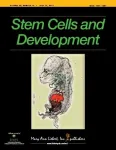A global comparison of life-cycle GHG emissions from passenger cars
2021-07-21
(Press-News.org) A far-reaching new study of the life-cycle greenhouse gas (GHG) emissions from passenger cars, including SUVs, draws sharp and meticulous distinctions between the climate impacts of battery and fuel cell electric vehicles on one hand and combustion vehicles on the other.
The detailed findings can be summarized straightforwardly. Only battery electric vehicles (BEVs) and fuel cell electric vehicles (FCEVs) powered by renewable electricity can achieve the kind of deep reductions in GHG emissions from transportation that comport with the Paris Agreement's goal of keeping global warming well below 2 °C. There is no realistic pathway to that goal that relies on combustion-engine vehicles, including hybrids of any sort.
The study, carried out by the International Council on Clean Transportation (ICCT), analyzes present and projected future GHG emissions attributable to every stage in the life cycles of both vehicles and fuels, from extracting and processing raw materials through refining and manufacture to operation and eventual disposal. The analysis was performed separately and in depth for the European Union, the United States, China, and India, and captured the differences among those markets, which together account for about 70% of new car sales worldwide.
"One important result of the analysis is to show that life-cycle emissions trends are similar in all four regions, despite the differences among them in vehicle mix, grid mix, and so on. Already for cars registered today, BEVs have better relative GHG emissions performance everywhere than conventional vehicles," said ICCT Deputy Director Rachel Muncrief.
In addition to its global scope, the study is methodologically comprehensive in considering all relevant powertrain types, including plug-in hybrid electric vehicles, and an array of fuel types including biofuels, electrofuels, hydrogen, and electricity. The life-cycle GHG emissions of cars registered in 2021 are compared with those of cars expected to be registered in 2030.
"Our aim with this study was to capture the elements that policymakers in these major markets need to fairly and critically evaluate different technology pathways for passenger cars," said ICCT researcher Georg Bieker, the study's author. "We know we need transformational change to avoid the worst impacts of climate change, and the results show that certain technologies are going to be capable of delivering deep decarbonization and others are clearly not."
The study methodology is innovative and distinguished from other life-cycle analyses' in additional important ways. It considers lifetime average carbon intensity of fuel and electricity mixes, and accounts for changes in the carbon intensity over vehicle lifetime given present energy policies. It also looks at real-world usage rather than relying on official test values to estimate fuel and electricity consumption; this is especially important in assessing GHG emissions of plug-in hybrid electric vehicles (PHEVs). It uses the most recent data on industrial-scale battery production and considers regional supply chains, which results in significantly lower estimates of GHG emissions from battery production than other studies have found. And it factors in the near-term global warming potential of methane leakage in natural gas and natural gas-derived hydrogen pathways.
"Even for India and China, which are still heavily reliant on coal power, the life-cycle benefits of BEVs are present today," said Peter Mock, ICCT's managing director for Europe. Pointing to the importance of the findings to the European Union's recently proposed changes to its passenger car CO2 emission regulation, he added, "The results highlight the importance of grid decarbonization alongside vehicle electrification. The life-cycle GHG performance of electric cars will improve as grids decarbonize, and regulations that promote electrification are crucial to capturing the future benefits of renewable energy."
INFORMATION:
Contacts
Georg Bieker (Berlin), researcher, +49 (30) 847129-110, g.bieker@theicct.org
Peter Mock (Berlin), EU managing director, +49 (30) 847129-102, peter@theicct.org
Rachel Muncrief (Washington DC), deputy director, +1 832-754-0045, rachel@theicct.org
Stephanie Searle (Washington DC), fuels program director, stephanie@theicct.org
Publication details
"A global comparison of the life-cycle greenhouse gas emissions of combustion engine and electric passenger cars."
Author: Georg Bieker
Download: https://theicct.org/publications/global-LCA-passenger-cars-Jul2021
The International Council on Clean Transportation is an independent nonprofit organization founded to provide first-rate, unbiased research and technical and scientific analysis to environmental regulators. Our mission is to improve the environmental performance and energy efficiency of road, marine, and air transportation, in order to benefit public health and mitigate climate change.
https://www.theicct.org
@TheICCT
ELSE PRESS RELEASES FROM THIS DATE:
2021-07-21
URBANA, Ill. - No one wants to live near a toxic plant. Toxic-releasing facilities such as paper, pulp, and other manufacturing plants negatively affect human health, environmental quality, and property values. And communities with lower income and educational attainment are more likely to house such facilities.
Since mandatory reporting about toxic facilities became publicly available in 1990, affected communities have increasingly expressed concern through the media, and engaged in targeted collective action and "toxic torts" lawsuits for health and environmental damages.
New ...
2021-07-21
A new wearable brain-machine interface (BMI) system could improve the quality of life for people with motor dysfunction or paralysis, even those struggling with locked-in syndrome - when a person is fully conscious but unable to move or communicate.
A multi-institutional, international team of researchers led by the lab of Woon-Hong Yeo at the Georgia Institute of Technology combined wireless soft scalp electronics and virtual reality in a BMI system that allows the user to imagine an action and wirelessly control a wheelchair or robotic arm.
The team, which included researchers from the University of Kent (United Kingdom) and Yonsei University (Republic of Korea), describes the new motor imagery-based BMI system this month ...
2021-07-21
During the height of the pandemic, some hospitals were overwhelmed with patients seeking treatment for COVID-19. This situation could happen again during future outbreaks, especially with SARS-CoV-2 variants of concern on the rise. Now, researchers reporting in ACS' Analytical Chemistry have developed a blood test to predict which people infected with COVID-19 are most likely to experience serious symptoms, which could help health care workers prioritize patients for hospitalization and intensive care.
Although many people who contract COVID-19 have either no symptoms or mild ones, some require intensive care for pneumonia with acute respiratory distress syndrome. Risk factors for severe disease include older age, ...
2021-07-21
Since antiretroviral therapy (ART) for HIV was introduced in 1996, AIDS-related morbidity and mortality has declined significantly. People living with HIV are now expected to live nearly as long as people without HIV. Despite these advances, those living with HIV often report poor well-being and health-related quality of life.
To guide stakeholders in improving health system responses to achieve the best possible long-term health outcomes for people living with HIV, a global multidisciplinary group of HIV experts led by CUNY SPH Senior Scholar Jeffrey Lazarus and including Distinguished Professor Denis Nash and Associate Professor Diana Romero developed a consensus statement identifying the key issues health systems must address in order to move beyond the longtime ...
2021-07-21
Activism and the Clinical Ethicist
Christopher Meyers
Although clinical ethics scholarship and practice have largely avoided assuming an activist stance, the many health care crises of the last 18 months motivated a distinct change: activist language has permeated conversations over such issues as the impact of triage policies on persons with disabilities and of color, and how the health care system has historically failed African Americans. "This activism is, to my mind, an overdue and welcome turn, and my goal here is to defend it--generally and with particular ...
2021-07-21
ALBUQUERQUE, N.M. -- Researchers at Sandia National Laboratories have designed a new class of molten sodium batteries for grid-scale energy storage. The new battery design was shared in a paper published today in the scientific journal Cell Reports Physical Science.
Molten sodium batteries have been used for many years to store energy from renewable sources, such as solar panels and wind turbines. However, commercially available molten sodium batteries, called sodium-sulfur batteries, typically operate at 520-660 degrees Fahrenheit. Sandia's new molten sodium-iodide battery operates at a much cooler 230 degrees Fahrenheit instead.
"We've been working to bring the operating temperature of molten sodium batteries down as low as physically possible," ...
2021-07-21
Scientists have developed a new way to model and map the health of coral reef ecosystems using data collected on the Khaled bin Sultan Living Oceans Foundation's Global Reef Expedition. This innovative method, presented today at the International Coral Reef Symposium (ICRS), can determine which natural and anthropogenic factors are most likely to lead to persistently vibrant coral and fish communities. Their findings can help scientists identify the reefs most likely to survive in a changing world.
The new models are a first step in being able to produce maps of global coral reef resilience.
To create these models, scientist Anna Bakker needed a lot of data on coral reefs from ...
2021-07-21
Drugs must be safe not just for the patients; in the case of pregnant patients, drugs must also be safe for the unborn children still in the womb. Therefore, at an early stage in the development of new medicines, candidate substances are tested in the Petri dish on embryonic stem cells from mouse cell lines. This is to avoid that an embryo-damaging effect would only be noticed at a later stage during tests with pregnant mice.
However, these cell culture tests are a highly simplified version of what takes place in the uterus. Researchers just add the test material to a culture of embryonic stem cells in a Petri dish, and can identify substances that have a direct adverse effect on embryonic cells. By contrast, in the body of a pregnant woman, active pharmaceutical ...
2021-07-21
New Rochelle, NY, July 21, 2021-- Evaluating the efficacy of novel therapies requires the ability to monitor wound progression accurately and reproducibly over time. Researchers have proposed a new scoring system for wound healing in mice based on parameters in each phase of healing, as described in an article in the peer-reviewed journal Stem Cells and Development. Click here to read the article for free through August 21, 2021.
The parameters include re-epithelization, epithelial thickness index, keratinization, granulation tissue thickness, remodeling, and the scar elevation index. The parameters can be assessed using either Hematoxylin & Eosin or ...
2021-07-21
By José Tadeu Arantes | Agência FAPESP – Gluten is a protein complex found in cereals such as wheat, rye and barley. It is responsible for the elastic texture of dough so that loaves and rolls can be baked into different shapes while remaining flexible and crusty. It also lengthens the shelf life of bread at room temperature, when associated with preservatives.
Gluten intolerance, however, has become a global epidemic, and gluten-free products are increasingly popular. The problem is that most of those available on the market are far from corresponding to consumers’ expectations in terms of appearance, aroma, flavor and durability. A research line focusing on ways to enhance gluten-free products is being pursued ...
LAST 30 PRESS RELEASES:
[Press-News.org] A global comparison of life-cycle GHG emissions from passenger cars





